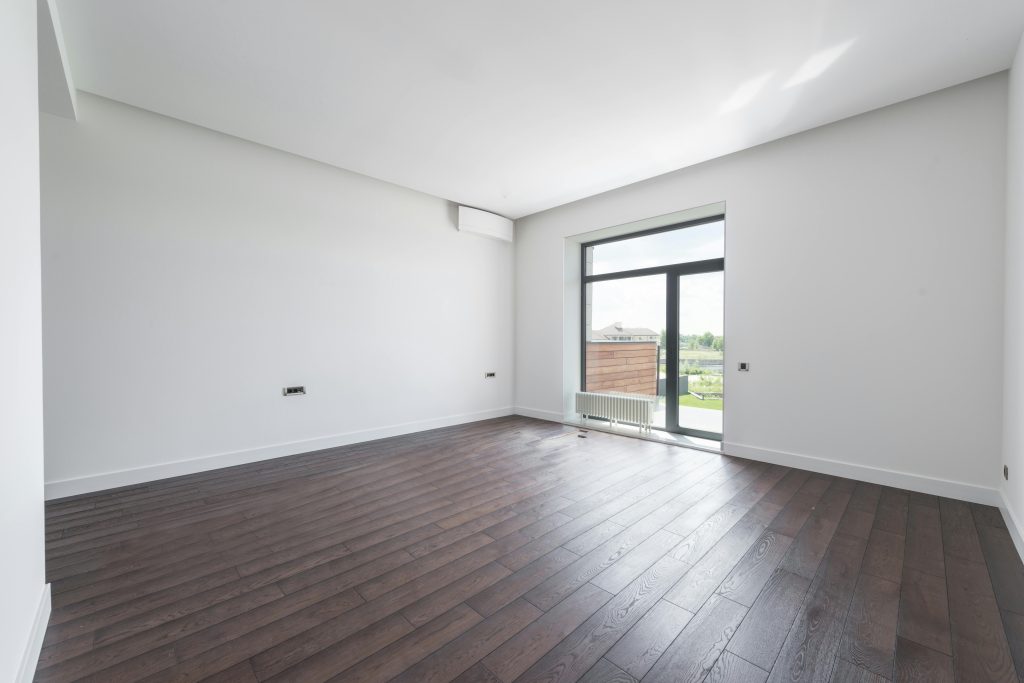When your fixed rate mortgage ends, your monthly repayments can shoot up overnight – often by hundreds of pounds. In 2025, with many rolling off low-rate deals onto steeper rates, that shock could hit hard.
This guide is here to help you navigate what’s next – from switching deals to selling your home entirely. If your new payments look unaffordable, We’ll also explore how a fast property sale could be the safety net you didn’t know you needed.
What Happens When a Fixed Rate Mortgage Ends?
You Automatically Move to the Standard Variable Rate (SVR)
As soon as your fixed deal expires, your lender shifts you to their Standard Variable Rate.
This is the default interest rate charged once your initial deal ends. And here’s the kicker: it’s usually much higher than what you were paying before.
While SVRs aren’t directly tied to the Bank of England base rate, they can be influenced by it and other market factors. Lenders set SVRs based on their own criteria, and they can change at any time.
In 2025, many SVRs are hovering between 7% and 9% per year. If your fixed rate was under 2%, you’re looking at a serious price hike.
Example of Potential Cost Increase
Let’s break this down with a real-world example.
Imagine you’ve got a £200,000 mortgage over 25 years. You were on a 1.5% fixed rate, and now you’re rolling onto an SVR of 7%.
- Before (1.5% fixed): Monthly repayment ≈ £800
- After (7% SVR): Monthly repayment ≈ £1,400
That’s an extra £600 a month (£7,200 a year) Ouch.
When Should You Act?
Don’t wait until the last minute.
Most lenders let you lock in a new deal up to six months in advance. That gives you breathing room to explore options and avoid a rushed decision.
The ideal time to act? Three to six months before expiry. This gives you:
- Time to compare deals
- Flexibility to fix your rate at a potentially lower level
- A chance to avoid falling into the SVR trap entirely
Even if interest rates are dipping slightly, leaving it too late could still land you on a higher deal than necessary—or worse, a default rate while your new mortgage completes.
Your Main Options When the Fixed Term Ends
Once your fixed term ends, you’ve got four main options. The best one for you depends on your finances, your goals, and how affordable your repayments will be going forward.
Option 1: Remortgage to a New Fixed or Tracker Deal
If you want control over your monthly payments, remortgaging to a new deal is usually the go-to move.
You can pick from:
- Fixed Rate Deals: Predictable monthly payments for 2, 3, 5, or even 10 years
- Tracker Deals: Variable rate that rises or falls with the Bank of England base rate – sometimes cheaper initially, but riskier long-term
Good to know:
- Lenders will run full affordability checks, including credit score, income, and debts
- Your current Loan-to-Value (LTV) ratio matters. If house prices have fallen or your equity is low, the deal you’re offered may not be the best on the market
For help finding the right deal, consider a whole-of-market mortgage broker. Check out Unbiased to find a trusted broker near you.
Option 2: Overpay Your Mortgage
If you’ve built up some savings or have extra cash, you could overpay your current mortgage to reduce the balance before switching to a new deal. This could lower your future repayments or even help you secure a better rate due to a lower LTV.
Generally, the best interest rates are available to those with a higher LTV. You should be aiming to achieve over 40% equity in your property if you want to be eligible for the best deals when it comes time to remortgage.
Good to know:
- Check with your lender for overpayment limits (usually 10% of the balance per year without penalties) and pay what you can without exceeding the limit
- In addition to becoming eligible for better interest rates, overpaying will shorten your mortgage term and save on the total interest you pay over the entire loan, but ensure it fits your budget.
Option 3: Product Transfer with Your Current Lender
If remortgaging elsewhere isn’t an option, say, due to affordability checks, you might be able to switch to a new deal with your current lender. This is called a product transfer.
Good to know:
- Often simpler than a full remortgage, with fewer checks
- Rates may not be as competitive, but it’s a quick way to avoid the SVR
- Product transfer usually becomes available around 3-6 months before the current mortgage ends. Your lender will usually send you a pack with new offers that you are eligible for.
Option 4: Sell the Property
If your repayments are no longer affordable, selling up could be the most responsible choice, especially if SVR payments are wiping out your income or pushing you into debt.
This is where we come in. At Property Rescue, we specialise in fast, guaranteed home sales. If you need to offload your home quickly to escape rising mortgage costs, we can:
- Make a cash offer within hours
- Complete the sale in as little as a week
- Pay all legal fees
- Buy your home as-is—no repairs, no surveys, no chain
- Offer a sell-and-rent-back option (FCA-regulated by the Financial Conduct Authority)
This route isn’t for everyone, but if you’re facing unaffordable payments, repossession, or mounting arrears, a fast sale can be a lifeline.
Is Remortgaging Still Worth It in 2025?
It’s a fair question. Mortgage rates have been a rollercoaster since 2022, and many homeowners are wondering whether switching deals now is worth the hassle.
Let’s break it down.
What Are the Current Rates Like?
As of mid-2025, average 2- and 5-year fixed rates are sitting around 4.8-5.2% and 4.5-4.9%, respectively, depending on your LTV. That’s a far cry from the sub-2% deals of a few years ago.
But here’s the thing: most SVRs are now 7-9%, and they’re not dropping significantly anytime soon.
So, while fixed deals feel pricey compared to the past, they’re still cheaper than doing nothing.
Typical rate comparison (mid-2025):
| Option | Typical Rate | Notes |
| 2-Year Fixed | 4.8-5.2% | More flexibility |
| 5-Year Fixed | 4.5-4.9% | Lower rate, less flexibility |
| SVR (Standard Variable) | 7-9% | Lender’s default, unpredictable |
| Tracker | 4.7-5.3% | Rises/falls with base rate |
This data is changing almost weekly so don’t rely on it. Instead, check real-time rate comparisons on MoneySavingExpert.
Affordability and Stress Testing
Post-2022, lenders have tightened affordability criteria. Even if you want to remortgage, you may face hurdles.
Here’s what they’ll scrutinise:
- Your income vs outgoings (including new debt since your original mortgage)
- Credit history (late payments or defaults can limit options)
- Current LTV – ideally under 80% and for the best rates under 60%
- Stress testing: Can you afford repayments if rates rise by 1-2%?
If your income has dropped, you’re self-employed, or your credit’s taken a hit, this can be a serious obstacle.
What to do:
- Speak to a whole-of-market mortgage broker
- Consider a product transfer if you can’t pass a full remortgage assessment
Fees to Consider
Remortgaging isn’t free, and with rates higher than before, every cost counts.
Here are the main ones to watch:
- Early Repayment Charges (ERCs):
-
-
- If you’re remortgaging before your fixed rate ends, you may owe 1-5% of your loan as a penalty.
- Check your mortgage paperwork or ask your lender.
- It’s best to start your new remortgage the next day after the current mortgage ends
-
- Product Fees:
-
-
- Many fixed and tracker deals come with arrangement fees, often £999 or more. Factor this into the overall cost. Don’t only look at interest rates as they can be misleading.
- Some deals let you add the arrangement fees into the loan, but that means paying interest on it where as if you pay the fee outright, you won’t pay interest on it.
-
- Legal and Valuation Fees:
-
- Often free with a product transfer or remortgage package deal
- If not included, budget £500-£1,500
Pro tip: The lowest rate isn’t always the cheapest deal. Use the “total cost over fixed term” as your comparison.
If you’ve crunched the numbers and remortgaging doesn’t stack up, or you simply won’t qualify it might be time to consider a different route.
And that brings us to the big question…
Can You Sell Your Home Instead?
For some homeowners, remortgaging just isn’t feasible. Maybe your income’s dropped, your mortgage has become unaffordable, or your personal circumstances have changed.
In these cases, selling the property might not be a failure, it could be the smartest financial move you make.
Reasons You Might Consider Selling
Let’s say your new repayments are hundreds of pounds higher each month, and you’re already stretched.
You might also be thinking about selling if:
- You want to downsize and release equity
- You’ve gone through divorce or separation
- You’ve inherited a property you don’t want to keep
- You need to relocate for work or family
- You’ve lost your job or your income has dropped
- You just want to cash out and rent somewhere while you figure out your next steps
Whatever the reason, selling isn’t something to feel bad about. In fact, acting fast can protect your credit score, your equity, and your peace of mind.
The Problem with Traditional Sales
You might be thinking: “I’ll just list the property and sell on the open market.”
But here’s the issue:
- It can take 4-6 months to complete a sale in 2025, according to Zoopla
- You’re at the mercy of chains, buyer finance, and negotiations
- Around 30% of UK property sales fall through
- You’ll pay estate agent fees (typically 1-2% of the sale price)
- You may need to do repairs to secure a buyer or pass a survey
If you’re already under pressure, whether financial or emotional, and the stress of a traditional sale could push things over the edge.
That’s where we step in. At Property Rescue, we offer guaranteed, fast cash purchases for homes in any condition, across England and Wales.
Here’s how it works:
- Cash offer within hours—based on a quick valuation
- Sale completed in as little as 7-days
- No estate agent fees
- No solicitor fees since we cover them for you
- No repairs or cleaning needed because we buy properties as-is
- Confidential, stress-free process
- Sell-and-rent-back option available (regulated by the FCA)
This isn’t an estate agent. We buy your home directly, with no faff and no chain. If you’re on the brink of default, repossession, or serious stress, we can help you escape the spiral.
Timeline Comparison:
- Traditional Sale: 4-6 months, with risks of delays or collapse
- Property Rescue Sale: 2-10 days, guaranteed completion
Fixed Rate Ending FAQs
Here are the answers to the questions we get asked the most when fixed rate mortgages come to an end.
What If I Miss the Remortgage Deadline?
If you don’t switch to a new deal before your fixed term ends, your lender will move you onto their SVR.
Don’t panic, you can still remortgage after that, but it’ll cost you more in the meantime.
What to do:
- Start comparing deals now—use a broker if you’re unsure
- Ask your current lender about a product transfer (they may backdate it a few weeks)
- Act quickly to avoid wasting money on higher SVR repayments
Can I Switch to Interest-Only?
Possibly, but it’s not guaranteed.
Switching to interest-only could lower your monthly repayments, but you’ll still owe the full loan amount at the end. Lenders require a clear repayment plan (e.g., investments or a property sale).
You’re more likely to get approved if:
- You’ve got significant equity in the property (typically 50% or more)
- You’re nearing retirement
- You’ve got a strong repayment strategy
Always speak to your lender early if you’re considering this.
What If I’m in Negative Equity?
Being in negative equity means your home is worth less than your mortgage. This can happen if:
- House prices fall
- You bought with a small deposit
- You’ve extended your mortgage term
Your options are limited, but you’re not stuck:
- Product transfers with your current lender may still be possible
- Some lenders offer specialised negative equity deals (ask a broker)
- Selling could be an option: Property Rescue can help with a guaranteed sale, even with debt attached
In worst-case scenarios, speak to a debt adviser or solicitor. Check Citizens Advice for free guidance.
Can I Switch If My Income Has Dropped?
It depends.
If your income has reduced since you took out your mortgage, a full remortgage may be tricky due to affordability checks.
But don’t assume you’re out of options:
- Product transfers often don’t require full income checks – ideal if your lender offers competitive rates
- Some lenders specialise in non-traditional or fluctuating income
- A mortgage broker can match you with a flexible lender
If remortgaging isn’t viable, and your payments are unaffordable, consider selling before you fall into arrears. Property Rescue can offer a no-pressure cash sale with zero upfront costs.
Can I Remortgage with Bad Credit?
It’s tougher, but not impossible.
Bad credit (e.g., missed payments, CCJs) can limit your options, but specialist lenders exist.
What to do:
- Work with a broker who deals with adverse credit mortgages
- Consider a product transfer, as your current lender may be more lenient
- Improve your credit score before applying and pay down debts and check your credit report via Experian
Selling may be a better option if you can’t secure a deal. Contact Property Rescue for a quick solution.
You don’t need to fix anything. You don’t need to find a buyer. You don’t even need to pay legal fees.
Get a free, no-obligation cash offer from Property Rescue today. Visit Property Rescue
We’re ready when you are.









